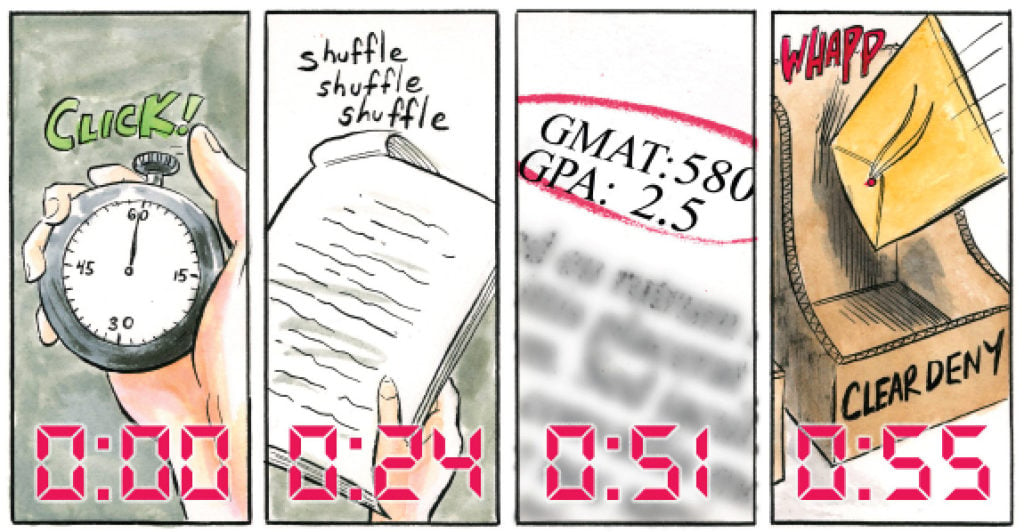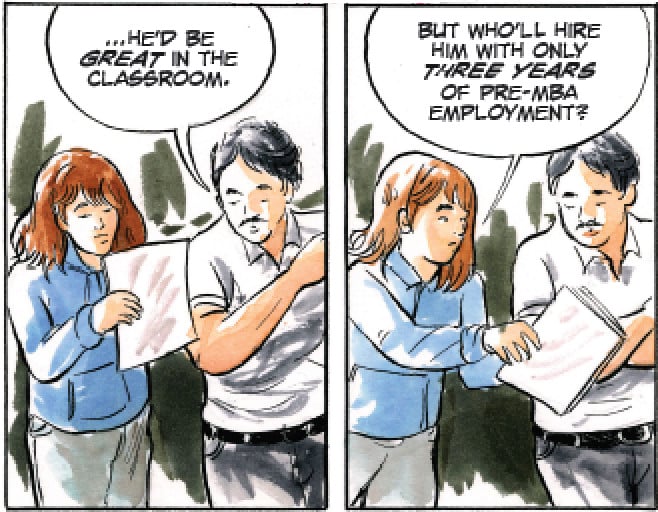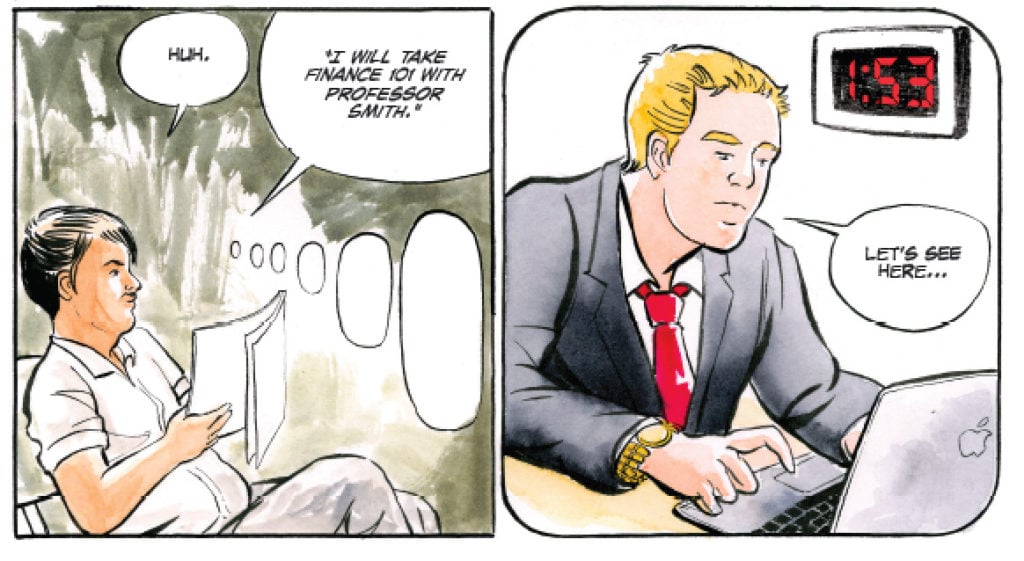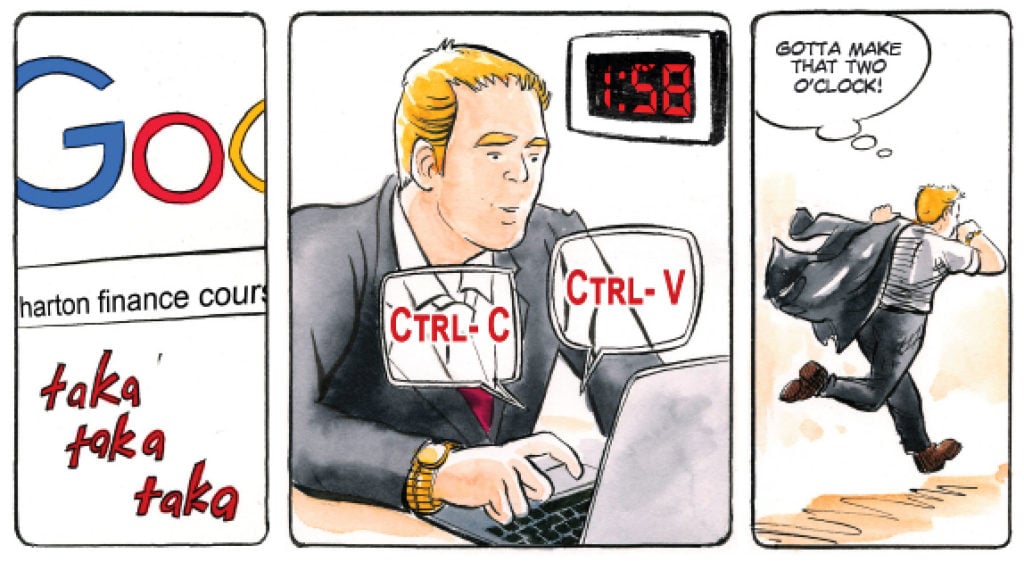Being dinged from your first-choice MBA program can be demoralizing, but it doesn’t mean that you can’t win admission when you reapply. If you diagnose your weaknesses accurately and take the right steps—to strengthen both your profile and your application materials—you can be admitted.
Let’s start off with some of the basic questions that you, as a reapplicant, might have about your prospects.
There are a lot of stories out there about the success that MBA reapplicants have had. From this anecdotal evidence, it may seem like MBA programs are, in fact, biased in favor of reapplicants. However, this is not true.
The success of reapplicants is actually a kind of survivorship bias; the pool of people who are motivated to reapply are also the ones who are willing to take steps to strengthen their application and candidacy, generally in five key areas:
AdComs essentially want reapplicants to answer the question “What’s different this time around?” Taking actions like the ones above provides a very satisfactory answer. You will, in fact, answer exactly this question when writing your reapplicant essay.
MBA programs like to admit applicants who know how to work hard and improve themselves, since they’re demonstrating the capacity to work hard in classes and on post-MBA recruiting. Schools do not admit reapplicants just because they admire their persistence.
The first rule of reapplications is if it ain’t broke, don’t fix it. You can drive yourself crazy rewriting and fine-tuning everything about your profile in the hopes of sending something “different” out. This is not the best use of your time unless the changes have a clear rationale.
First of all, you should know that the schools won’t begin by reading your old applications. They’ll pull those files if and only if your current application appeals to them.

This is wonderful, because it means that you have the freedom to fix your errors this time around, and you can be confident that if the admissions reader pulls your old file, it’s precisely because they like what they see in the current year’s file.
What you should change depends on why your application was rejected in the first place. But understanding that is easier said than done.
You may be tempted to ask schools for feedback … but when was the last time that you got honest, useful feedback after a failed job interview?
While it makes sense to take advantage of any formal feedback sessions offered by the schools (e.g., HBS, Tuck, Darden), the feedback provided is typically cryptic and noncommittal. “It was a really tough decision! We had a strong applicant pool this year.”
What you can do instead is familiarize yourself with the programs’ admissions criteria and compare yourself against those. Some of the most common reasons for rejection from an MBA program include:



It’s very common for top MBA programs to require—or at least give you the option to submit—some kind of reapplicant essay or statement.
Many details vary by school: the exact prompt and length, whether it’s mandatory, and whether you’ll also have to redo the other essays or only submit the reapplicant essay. (Note that when any part of the MBA application is described as optional, you should essentially always do it anyway—don’t neglect any opportunity to stand out.)
Whatever the format, the same basic principle applies: As a reapplicant, you need to reflect on why you failed before and clearly communicate what has changed.
That means first working out the likely cause of your rejection, and then addressing the problem. To make this a bit more concrete, let’s look at some examples from successful reapplicants we have worked with in the past.
We worked with a reapplicant who had previously applied to several top schools. She had attended a good undergraduate program, had a good GPA and a good GMAT score, worked for a good employer. Basically, she had everything she needed to be a successful MBA applicant. The problem was her career goal:
Becoming a management consultant specialized in the FinTech industry.
This career goal showed the admissions committee reader that she hadn’t done basic research:
So we put most of our time and energy into working with her on her career goal. In her reapplication essays, she stated the goal of beginning her management consulting career as a generalist and explained why that was motivating to her.
She also put a lot more emphasis on the amount of research she had done by networking with current management consultants and highlighting that she had worked hard to understand their roles and trajectories.
It was important for her application to show that she had invested a lot of time in this process of researching consulting jobs (and hadn’t just hired a better admissions consultant who told her to “make these changes”).
So she owned her previous mistake in her reapplicant essays, admitting that she hadn’t sufficiently researched her career goal last year. She discussed using the Forté Foundation career-oriented forums and speaking to other successful women in the industry, while suggesting how she could succeed with the help of their advice.
With no change in her job or GMAT score, the applicant was accepted to her first choice: Columbia Business School. In this case, the key was simply more research leading to clarity on career goals.
We also worked with a reapplicant who had previously been through not one but two previous application cycles with no success.
This candidate worked at a tier 2 consulting firm—a disadvantage relative to those coming from MBB firms. But his sights were firmly set on the top programs: Harvard, Stanford, Wharton.
By the time he contacted us, he’d already applied twice: first on his own and then, on the second attempt, with an admissions consultant. In both cases, his applications were all rejected without even an interview invite.
On the face of it, these rejections weren’t all that surprising. This was a candidate with a decent but not exceptional professional background who had set a very ambitious target in terms of his school selection.
But in his conversations with the candidate, our consultant discovered clear strengths in his profile and personal story that had been neglected in previous applications:
Using these two elements as the core of his application, the candidate was accepted by his first-choice school, HBS.
This candidate could certainly have succeeded in his previous attempts if he, or his previous consultant, had known which aspects of his profile and personal story to highlight. Our in-depth, personal approach to coaching allows us to pick out details that others might miss or ignore.
Both the reapplicants discussed above ultimately succeeded not by returning years later with a radically different profile, but by strategically repositioning themselves—communicating the right goals, the right achievements, the right stories.
There are of course cases where more extensive changes are needed to give you a realistic chance of success at your target school. To summarize, here are a few general tips on reapplying:
Ultimately, while there’s no “reapplicant advantage” per se, reapplicants who approach the process seriously—especially with professional help—can expect to do better than they did before. Those who simply try their luck again with applications that are not meaningful improvements on their previous attempts can expect to fail.
It’s easy to feel frustrated and lost in response to a rejection. Without clarity on why you were dinged and what you should do differently next time, you can’t effectively learn from the experience.
That’s why we offer an MBA Ding Analysis service in which one of our expert consultants evaluates your entire application package, providing in-depth feedback and advice, and answering all your questions.